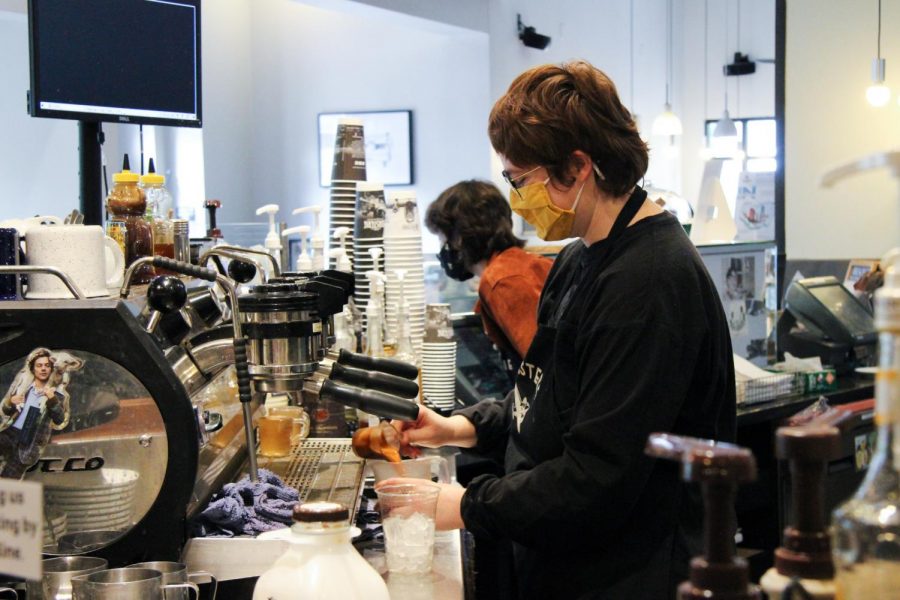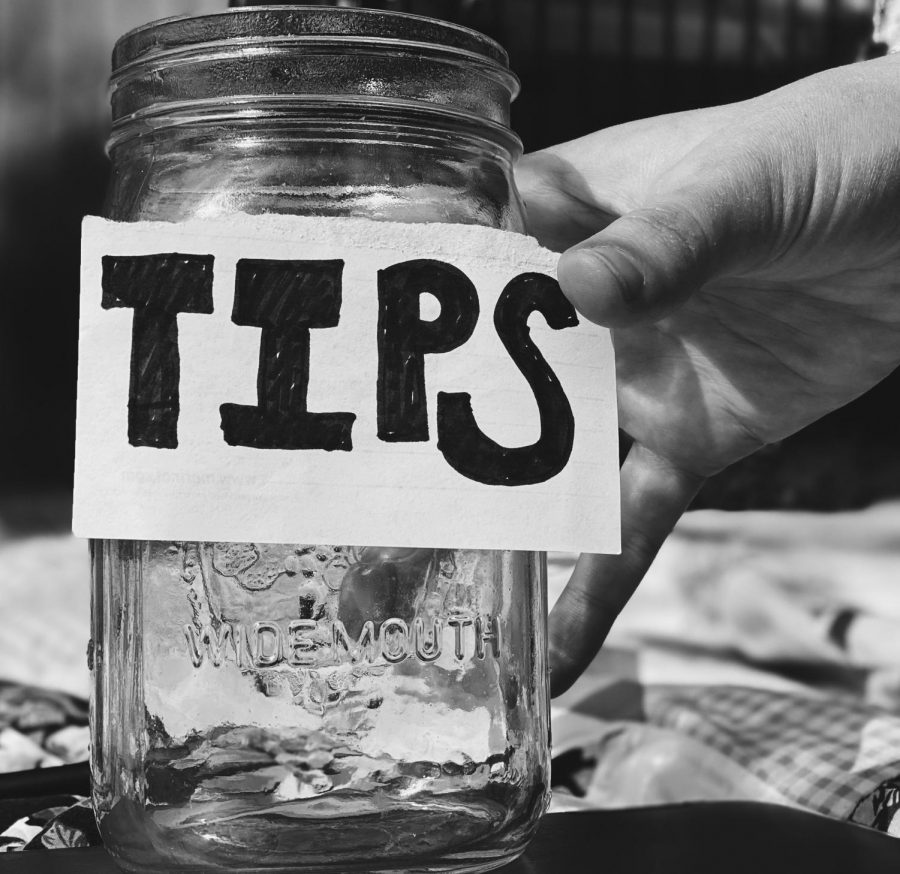Students with chaotic lives turn to caffeinated drinks, causing irritation, fatigue | by KATIE HYDE
As she made her second trek up the steps to the third floor of Donnelly Hall, sophomore Jennifer Blake blamed her muscle cramps, lethargy and anger on a sleepless night.  When she tried to recall what caused her lack of sleep, Blake remembered the soda she had drank the night before. After walking from the M&A Building to Donnelly in search of a book she had loaned to a friend, Blake’s mood worsened when her friend informed her she had left the book back in M&A.
‘I became really frustrated and cranky when she told me she didn’t have the book,’Â Blake said.
When Blake rethought the situation, she realized her anger was caused mainly by her fatigue.
Blake, like many students, suffers from daily fatigue. She drinks a soda immediately when she gets home from school every day as a remedy for this fatigue and as a boost to do her homework.  However, caffeine can cause drowsiness, crankiness and impair sleeping habits, the very symptoms it is known to prevent.
Many teens drink caffeine, a stimulant to the nervous system, to stay awake at night or to wake in the morning. Drinking caffeine close to bedtime, however, disrupts the body’s circadian rhythm, or 24 hour biochemical and behavioral pattern, resulting in restless sleep.
‘I drink caffeine so I can stay awake to do my homework, but I’ve noticed it is harder to sleep [after I do so],’ Blake said.
Teenagers drink caffeine to handle their busy schedules which often involve school, work and extracurricular activities according to Dr. Ann Romaker, a sleep specialist at St. Luke’s Hospital.
“Teenagers, like their parents, are trying to do too much,” Romaker said.  “The pressures of school work, extracurricular activities, jobs and social life add up to huge amounts of time.  Many teens are also concerned about getting into a good college, so they fill their schedules overflowing in order to stand out from the crowd.”
Though caffeine may help teens cope with hectic schedules by giving a two hour buzz, its drinkers can face several consequences.  According to Romaker, drinking caffeine within eight hours of sleeping speeds brain waves, which results in a lighter than normal rest. Apart from the consequential next-day fatigue, restless sleep causes lack of concentration, short term memory loss and moodiness.
While all caffeinated beverages can cause sleep deprivation, the most harmful are energy drinks, such as Red Bull, because of their high levels of caffeine.  One can of Red Bull has 80 milligrams of caffeine while one can of Diet Coke has 45 milligrams.
In addition to lethargy and irritability, drinking caffeine can cause nausea, muscle tremors and increased heart rate, according to the American Academy of Sleep Medicine.
However, Dr. Damien Stevens, a sleep specialist at KU Medical Center, says that the consequences of caffeine, when consumed moderately, are minimal.
‘There are likely few long term adverse consequences [of caffeine], but as most things, use in moderation,’Â Stevens said.
Drinking caffeine does not impair health as long as the body can tolerate it said Stevens. When caffeine consumption harms sleep, mood and performance, it becomes unhealthy.
Although medical professionals may disagree on the long term effects of caffeine, they mostly agree on one point: the importance of sleep.
‘Get more [sleep],’ Stevens said.  ‘You can never get too much, your body can’t overdose.  You know you’ve slept enough when you can’t sleep more even when you try to.’Â
Romaker agreed that sleep is of paramount importance to health.
‘Remember that sleep is necessary, not an inconvenience or a burden,’Â Romaker said.
Sidebar (compiled from the National Sleep Foundation’s website www.sleepfoundation.org)
5 tips to healthier sleep
1. Maintain a regular sleep schedule to sync your body with its natural pattern.
2. Don’t eat within two hours of bedtime.
3. Make your room sleep friendly by keeping it cool and dark. Letting in light in the morning helps tell your body to wake up.
4. Establish a routine pre-sleep schedule, such as taking a bath or reading a book.
5. Sleep on a comfortable mattress and pillow.








